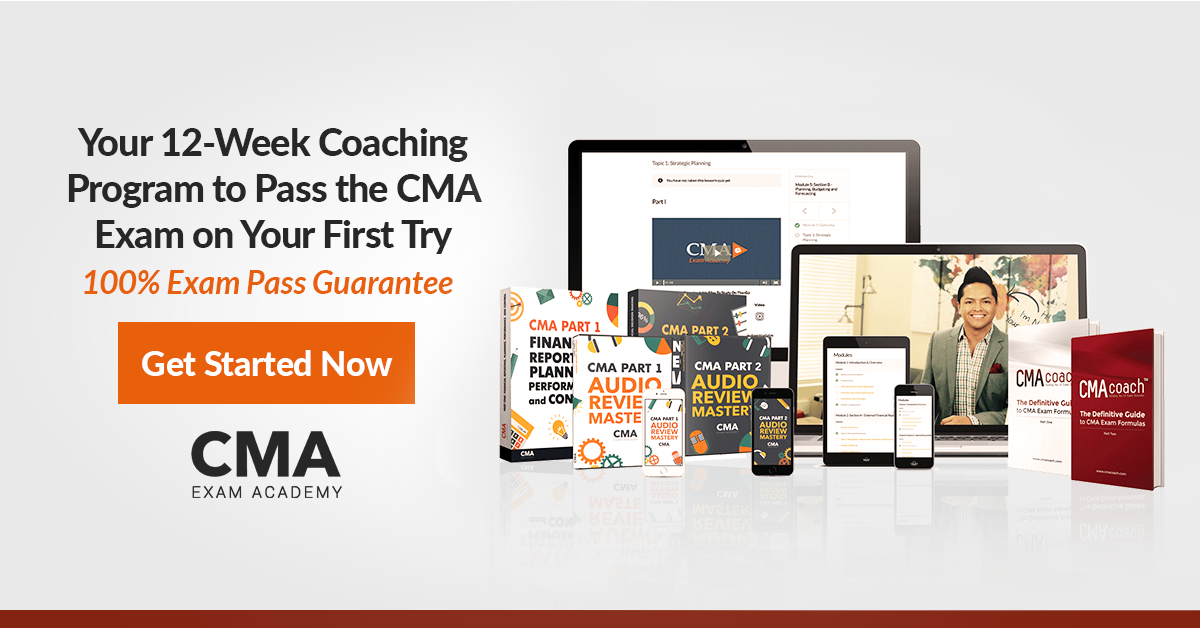What are the most important characteristics of successful budgeting to learn about for the CMA exam? To be successful, a budget must be Well-Planned, Flexible, Realistic, and Clearly Communicated.
The Budget Must Address the Enterprise’s Goals
Essentially, a budget must begin with the enterprise’s short and long-term plans and goals. The budget should not just to recreate the enterprise’s previous year’s results with slight changes. It must include valuable input from planning so that the budget becomes a powerful guiding tool.
When the budget addresses an enterprise’s goals and objectives clearly, it is bound to be successful.
The Budget Must be a Motivating Tool
The budget should motivate and inspire all the people in the enterprise to work toward attaining the enterprise’s goals. Furthermore, the budget must encourage everyone to work together for the improvement of the organization. The budget should not be viewed as a rigid plan, or as a device for top management to use in assessing blame.
Most often, the budget is successful when managers and employees of an enterprise view the budget as an essential tool to enhance their overall performance.
The Budget Must Have the Support of Management
The budget must undeniably have the support of management at all levels of the organization. The support of both the top-level managers and the lower-level managers is crucial to garner the support of the employees of the enterprise. Hence, to be successful, it is critical for the budget to have the support of management at every level within the organization.
The Budget Must Convey a Sense of Ownership
To be successful, the budget must convey a sense of ownership to the people in the enterprise who are given the responsibility of implementing the budget. At no stage during its implementation, the budget should convey a sense of restriction or be overbearing on the people responsible for implementing it.
The budget should not be imposed on them. Rather, the people responsible for its implementation, must have the necessary input into the budget’s development.
The Budget Should be Flexible
A key factor in the success of a budget is whether it is flexible or not. Most successful budgets are flexible. A flexible budget permits an enterprise in going ahead with plans that are strategically important to the enterprise. However, a rigid budget becomes an excuse for not executing strategically important plans.
A flexible budget permits an enterprise to carry out essential unplanned and unforeseen large maintenance works which benefit the enterprise. A rigid budget does not permit this, thus hurting the enterprise in the long run.
The Budget Should be a Correct Representation
To be helpful, the budget should accurately represent what is anticipated to happen. An inaccurate budget will not have the support of the managers and employees directly affected by it.
Furthermore, an inaccurate budget encourages managers of an enterprise to cleverly fabricate “budgetary slack” into their budgets.
Budgetary slack is nothing but budgeting lower revenues and higher expenditure. This results in managers being unfairly rewarded whenever they exceed their revenue targets or curtail their expenses.
Hence, to be successful, a budget should unquestionably be an accurate representation of what is actually expected to occur.
The Budget Should be Coordinated
The budget must be coordinated to smoothly operate within the different business units of an enterprise. For example, the sales manager will strive to increase the sales of the enterprise. However, the credit manager will be extremely keen in limiting bad debt write-offs.
Here, a prudent coordinated effort to set up credit standards that both of them can profitably support should be integrated into the budgeting process.
If you would like to receive free content and exam tips via email, please subscribe using the form below. I wouldn’t want you to miss out on these golden nuggets.

Hi, I’m Nathan Liao (aka the CMA Coach)! For the last 10 years, over 82,000 accounting and finance pros came knocking at my door seeking guidance and help. If you’re also aiming to conquer the CMA exam on your very first try—without wasting away time or money—you’ve found your ultimate guide. Dive in deeper to discover more about me and the dedicated team that powers CMA Exam Academy. Click here and let’s embark on this journey together!



6 Comments on “CMA Exam Study Notes: Characteristics of Successful Budgeting”
It was very helpful
Very awesome good facts
It really helped me thanks
Very nice and helpful points
Points are very sensible and realistic..
the point above are very nice in in studding area i like them
I am glad that you like them, Nicas! Feel free to reach out if you have any questions, I’ll be happy to help.